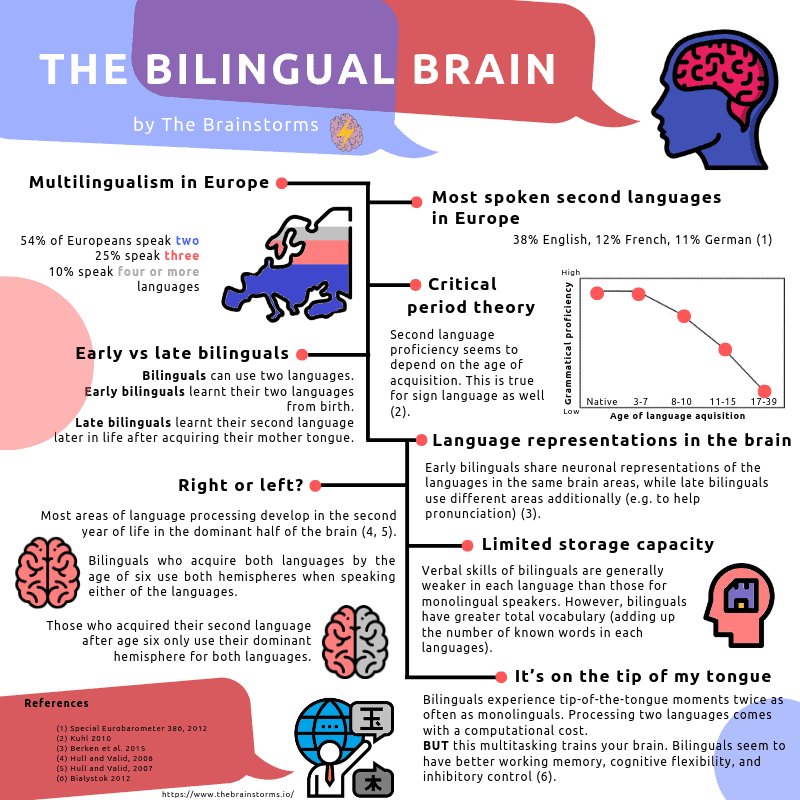As a bilingual and someone who worked a few years teaching English as a foreign language myself, it was very remarkable for me to learn these facts at some point during my career. I find it very useful to have that information in a more accessible and approachable format.
If you wonder why some people have an easier way with languages than others, this graphic shows you a big reason why. If a person is exposed to a second language during his or her earlier development, that knowledge will find its space in both brain’s hemispheres. However, people who tried to learn their second language at a later age (after the age of 15 or so) only register that knowledge in one brain hemisphere.
It is very important to keep that in mind both as a student and as a teacher, because when (in my case as a teacher) you get adult or even senior students, they tend to feel left behind by their younger peers. In my experience, private schools make an unreasonable amount of impossible promises, and when these types of students can’t live up to those expectations the blame is placed on them.
The important thing to keep in mind if you or someone you know is looking forward to learning a new language at an older age is not to discourage them from doing so because “they’re too late for that”. Of course, you also shouldn’t expect them to catch on with younger students who have still-developing brains with plenty of room to accommodate this new knowledge.
Kids and seniors need a different approach to learning new languages, and if your private school insists on teaching them the same way I’d say—from experience—that learning the language is not actually the real goal.

